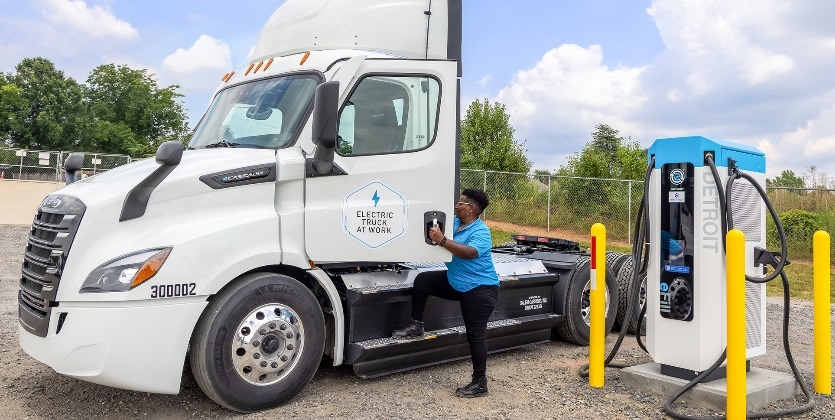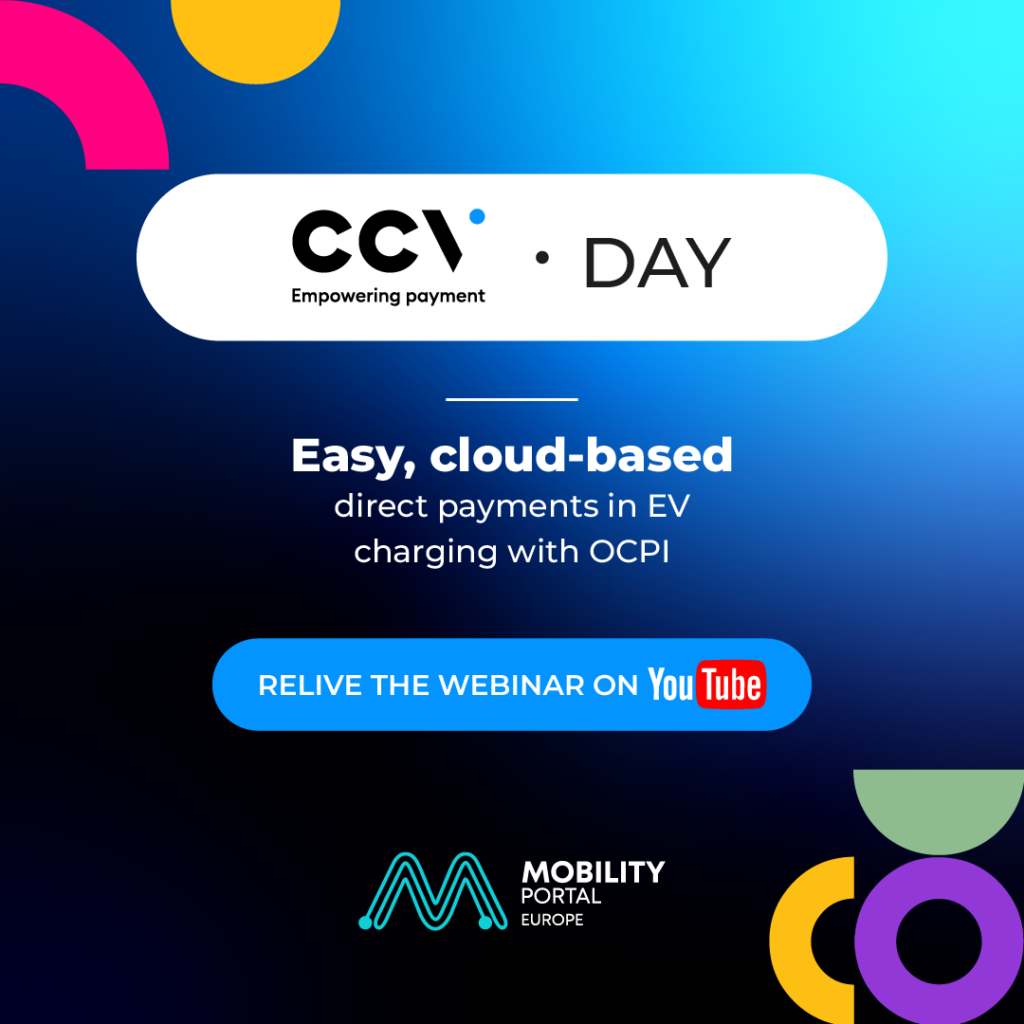Daimler Truck North America (DTNA) and Salem Carriers, a dedicated contract logistics company, announced their collaboration to electrify DTNA’s inbound logistics operations at the Salem Carriers hub near Charlotte, North Carolina.
Daimler Truck Financial Services (DTFS) is involved in the project, partnering with Electrada, a fleet electrification solutions company headquartered in Cincinnati, Ohio.
Together, they provide an all-in-one Charging-as-a-Service (CaaS) solution with a fixed and predictable monthly rate.
This solution covers the development, operation, and maintenance of the charging infrastructure as well as the energy contract.
Salem Carriers, which services DTNA’s inbound logistics network in the Carolinas, plays a crucial role in connecting manufacturing sites, supply chain hubs, and supplier locations.
They deployed DTNA’s Freightliner eCascadia vehicles for daily inbound logistics routes.
These operations are made possible through the strategic partnership with Electrada and DTFS to provide a full-scale depot electrification effort, aligned with DTNA’s goal to implement electric mobility solutions throughout its operations.
The CaaS solution for Salem includes deployment, ownership, operation, and energy management of the fleet charging infrastructure at Salem’s Statesville, North Carolina depot, complemented by en-route top-off charging at the unique Duke Energy/Electrada mobility microgrid in Mt. Holly, North Carolina.
DTFS serves as the catalyst by reducing entry barriers with the new CaaS solution; integrating the vehicle lease, electric service program, insurance, and other key components into a unified, predictable cost structure for Salem.
Highlights of the initiative include:
- Continued Electrification of Inbound Logistics: Building on previous DTNA initiatives in the Pacific Northwest and Mexico, the collaboration with Salem facilitates the integration of zero-emission vehicles (ZEVs) into DTNA’s supply chain, reinforcing the company’s sustainability pledge. This mirrors Daimler Truck’s successful sustainable transportation initiative in Germany in 2023.
- First CaaS Project Deployment for DTFS with Electrada: The partnership with Electrada marks a significant milestone as DTFS’s inaugural implementation of CaaS, establishing a model for future electrification efforts.
- Shift Towards Service-Level Agreement backed CaaS Solutions for Depot Electrification: A performance-backed CaaS model for depot electrification is recognized as the most reliable approach for critical transport operations.
- Custom Electric Service Program: A tailored electric service program caters to specific operational needs and duty cycles for Salem’s DTNA operations, ensuring energy cost stability throughout the partnership.
- Integration with Duke Energy Microgrid: Located adjacent to DTNA’s eastern U.S. manufacturing facility, the Duke Energy/Electrada mobility microgrid will provide Salem with reliability-guaranteed electric fuel. This microgrid is supported by the nation’s first and most flexible utility-partnered setup, featuring solar generation, stationary energy storage capacity and best-in-class energy management applications.
Jeff Allen, Senior VP of Operations and Specialty Vehicles at Daimler Truck North America, says: “This program with DTFS, Salem, and Electrada reinforces DTNA’s commitment to decarbonization throughout the supply chain by seamlessly using Daimler vehicle and energy solutions available to all logistics enterprises today.”
“Electrifying our inbound logistics operations is a clear testament to the reliability of DTNA’s electric Freightliner trucks, combined with high-performance charging infrastructure and rigorous energy management. There’s no better validation point to the market than being the customer of your own solution,” he adds.
Stephan Unger, CEO Daimler Truck Financial Services, emphasizes the importance of services for the ZEV transformation.
“By addressing the charging infrastructure, we are able to better support zero-emission truck goals and ultimately unlock larger environmental and social-economic benefits,” Unger states.
Dennis Giff, General Manager at Salem Carriers, indicates: “Introducing battery electric vehicles to our operations was a new initiative. The DTFS/Electrada approach was unified, aligned with our operating needs, and set the stage to scale future electric vehicle integration into our services.”
Kevin Kushman, CEO of Electrada: “Only through the comprehensive bundling of services are logistics companies, like Salem, able to eliminate the capital, technology, and energy price volatility risks of launching a zero-emissions fleet.”
“We’re proud to team with Daimler Truck Financial Services and Daimler Truck North America to demonstrate how to meet the reliability and TCO requirements of a critical logistics function with our zero-emissions CaaS solution,” he adds.
In line with its sustainability goals, DTNA aims to achieve carbon neutrality for all new products and services from direct suppliers in Europe, the United States, and Japan by 2039.
As early as 2020, the Portland Truck Manufacturing Plant, where the Freightliner eCascadia and eM2 are built, achieved CO₂-neutral production by reducing energy consumption and offsetting on-site emissions.
DTNA plans to achieve CO₂-neutral production at all remaining truck manufacturing plants by 2025.
In addition, the firm is proactively developing solutions to optimize the entire lifecycle of the batteries used in its electric trucks.
This includes strategies such as repairing, remanufacturing, repurposing, and end-of-life recycling.





